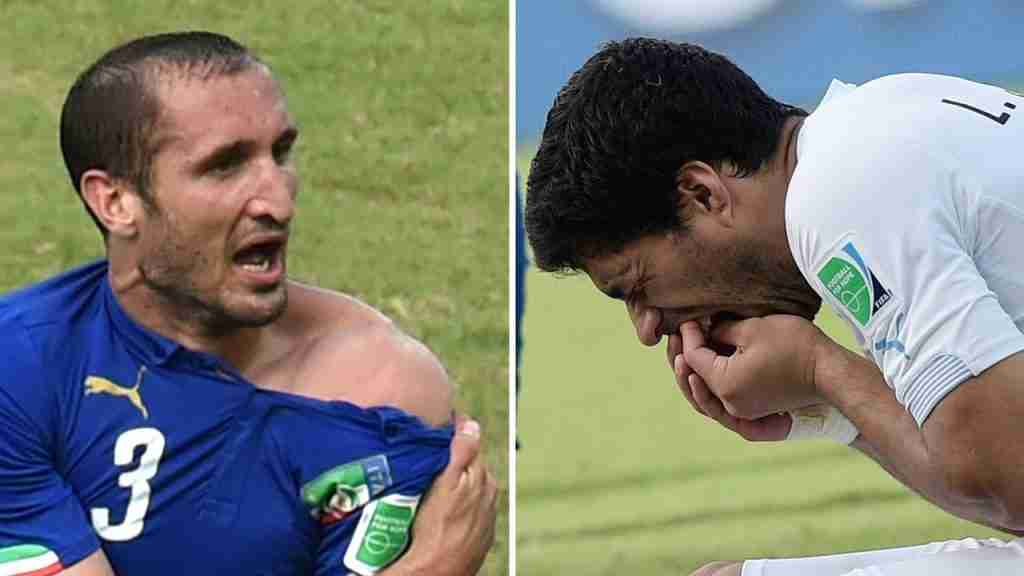Football history is littered with controversies, which makes sense in a global sport where decisive outcomes are decided by microscopic margins. While acknowledging that many noteworthy incidents have been overlooked, here’s a look at the 15 most controversial moments in football history.
15. Tempers flare at Stamford Bridge (2009)
With every dubious decision by referee Tom Henning Ovrebo in favour of the visitors in the 2009 Champions League semi-final second leg between Chelsea and Barcelona, Stamford Bridge grew more heated. The players, too. Andres Iniesta’s added-time goal dashed Chelsea’s hopes – and overshadowed Michael Essien’s ethereal strike – but not before Ovrebo denied the Blues another penalty in the dying seconds. A furious Didier Drogba was restrained and later suspended, while Ovrebo, who had to be escorted off the pitch by police, admitted “It wasn’t really my best day.”
14. The Forbidden Exploits of Suarez (2010, 2014)
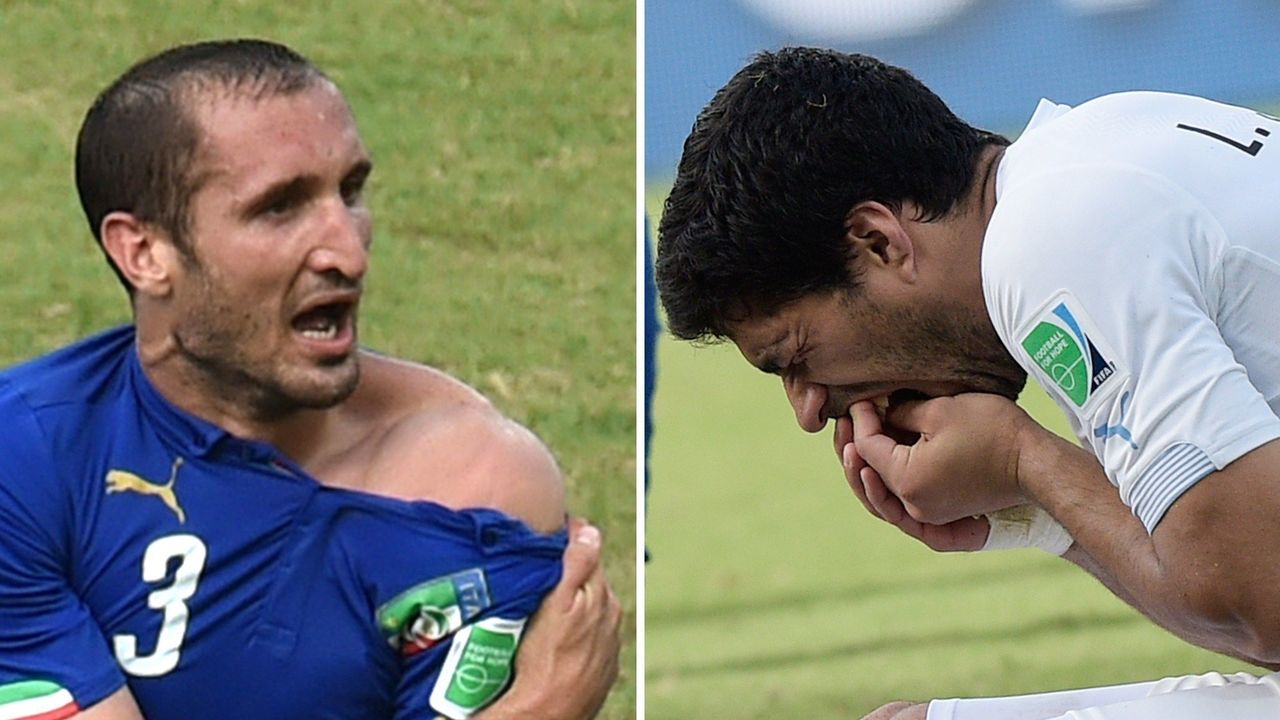
Uruguayan striker Luis Suarez is a real mess, with a knack for diving and stamping. He denied Ghana a last-minute winning goal in the 2010 World Cup quarterfinals with a handball. Suarez called it “the save of the tournament,” Asamoah Gyan missed the ensuing penalty and Uruguay advanced on penalties. Then, at the 2014 tournament in Brazil, Suarez bit Italy’s Giorgio Chiellini on the shoulder and was promptly suspended for four months. It was the third time Suarez had been punished for nibbling an opponent. His inclusion on this list is a kind of lifetime achievement award.
13. Ronaldo fears he will be sick during the World Cup (1998)
Ronaldo’s importance at the 1998 World Cup cannot be overstated. After scoring 34 goals for Inter, he scored four more in the final against France. Ronaldo then suffered a seizure that required neurological and cardiac tests. He was dropped from the team sheet 72 minutes before the match, yet was named in the starting line-up half an hour later, amid rumours of divisions in Mario Zagallo’s camp. There are countless versions of the story that only add to the mythology, but in the end, Ronaldo was below par, Zinedine Zidane was not, and France won.
12. Lampard’s ghost goal (2010)
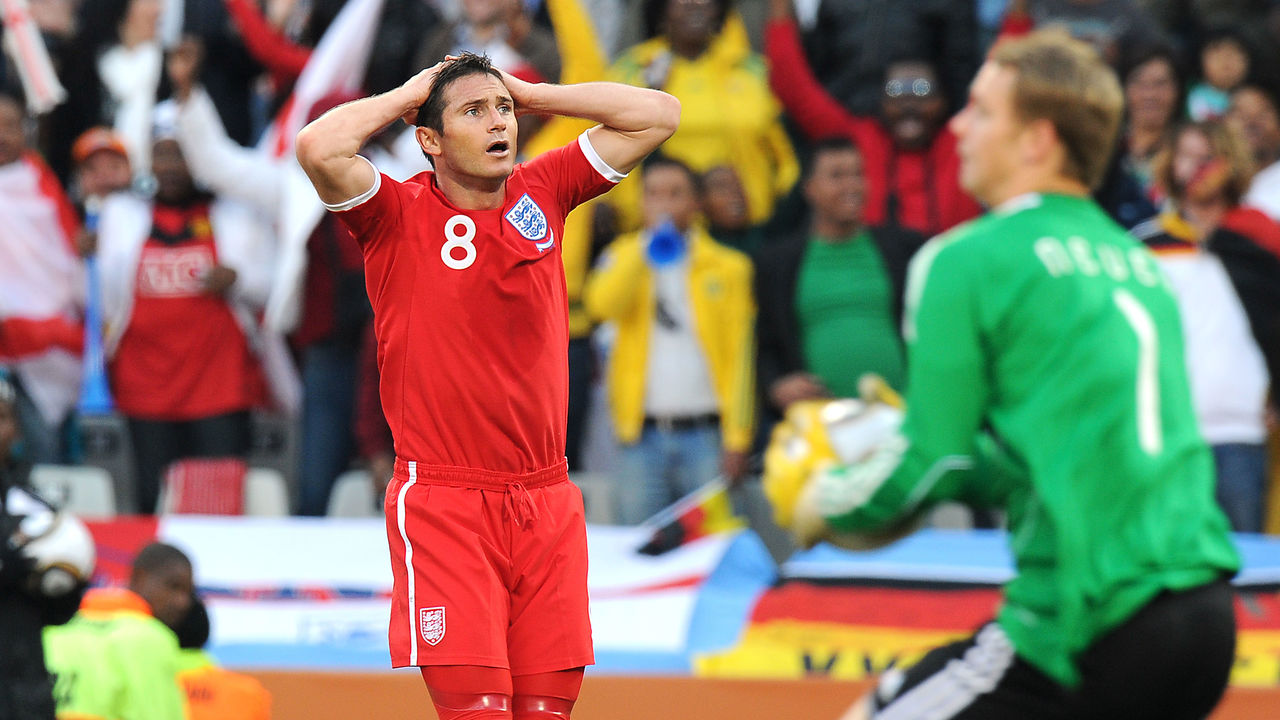
Goal-line technology exists largely because of Frank Lampard. Not because of the former England player per se, but rather because of his Ghost goal against Germany In the 2010 World Cup round of 16, the Three Lions were not defeated by the Uruguayan refereeing team, but by the talent gap between the two teams, which allowed Thomas Müller to make a number of fertile counter-attacking attempts in a 4-1 German victory. “That changed the game for the better,” Lampard said pleasantly. say after goal-line technology was approved by the International Football Association Board (IFAB) in 2012.
11. Hurst’s Doubtful World Cup Winner (1966)
One generation had Lampard, the other Geoff Hurst’s ambiguous second goal for England against West Germany in the 1966 final at Wembley. With the score tied 2-2 in extra time, Hurst turned around quickly and fired an authoritative shot The ball hit the crossbar and bounced towards the goal line. Referee Gottfried Dienst consulted his referee before awarding the goal and Hurst scored his hat-trick late in the game, helping England win their only World Cup. It all happened in a flash, years before the unambiguous video replay became the barometer.
10. Maradona’s failed doping test (1994)
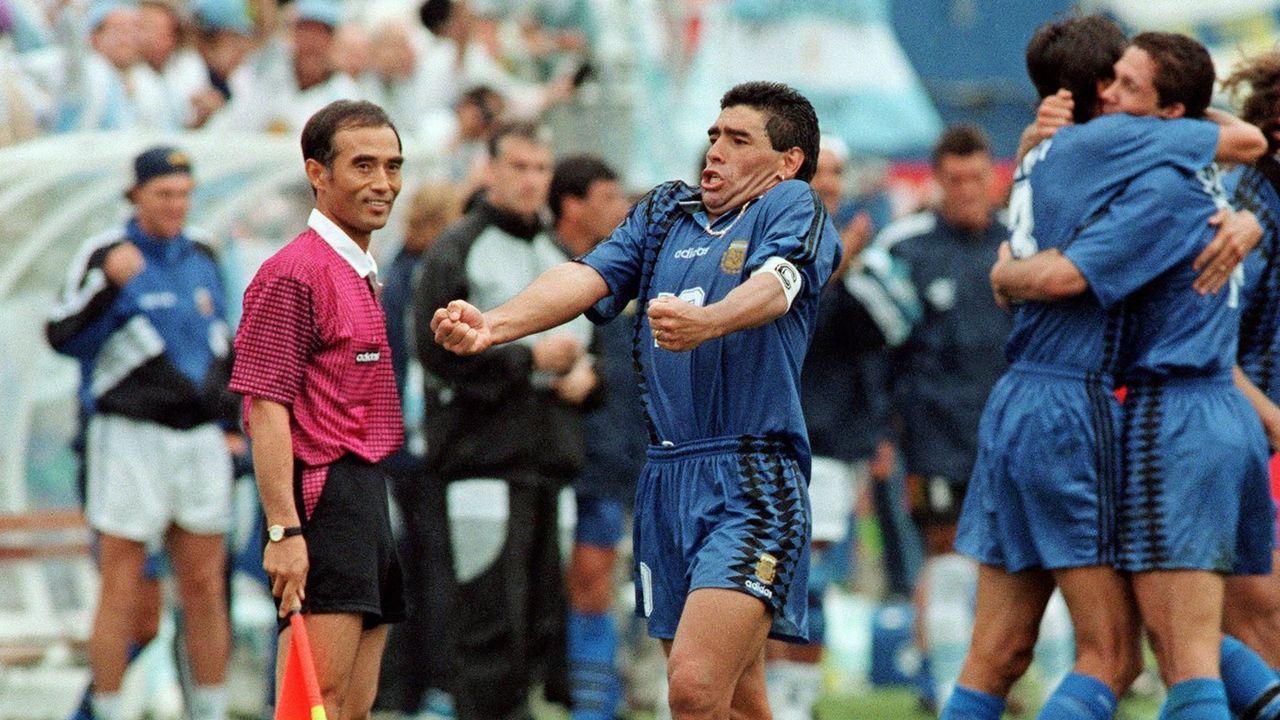
Diego Maradona’s fourth and final World Cup in 1994 ended after two group games against Greece and Nigeria when the Argentine icon tested positive for the stimulant ephedrine. It was the latest twist in a famously fractious career that had seen the diminutive world champion banned for 15 months for cocaine in March 1991. In one fell swoop, Argentina’s hopes of making the tournament were fundamentally crippled, with Maradona’s final goal and indelible celebration against Greece, marking the end of a legendary international spell for the struggling star.
9. The “Shame of Gijón” (1982)
West Germany and Austria went into the final match of the first round of the 1982 World Cup in Spain knowing that a West German victory by one or two goals would ensure the two European teams qualified at the expense of Algeria, who had played the day before. Within the first ten minutes, the West Germans scored a goal through Horst Hrubesch before both teams appeared to ease off. Despite widespread outrage that led to accusations of match-fixing, FIFA declared that no foul play had been committed. Shortly afterwards, the rules were changed so that the group stage finals would be played simultaneously.
8. South Korea’s dubious run to the semi-finals (2002)
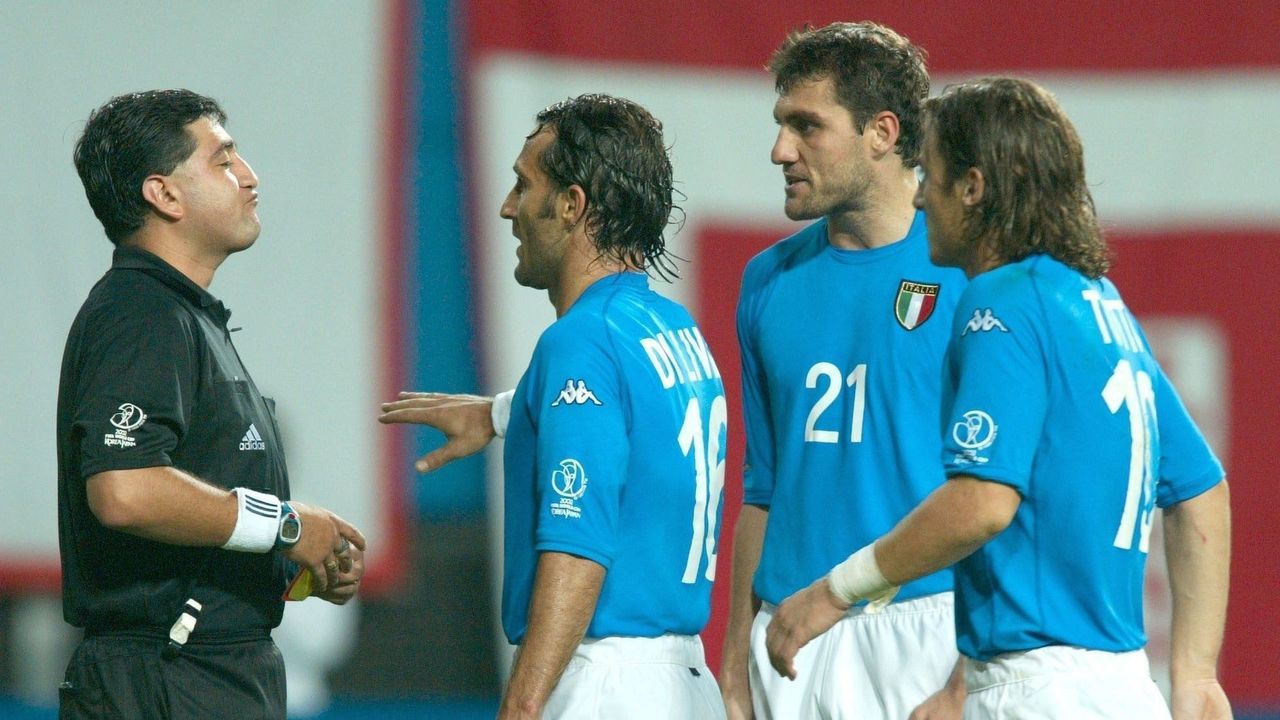
South Korea’s surprise semi-final appearance as co-host of the 2002 World Cup was a farcical journey marred by odious refereeing. First, Ecuador’s Byron Moreno disallowed an Italian goal and sent off Francesco Totti to secure South Korea’s quarter-final spot. In South Korea’s next match against Spain, Egyptian referee Gamal Al-Ghandour disallowed two La Roja goals that had escaped the notice of a surly linesman. South Korea were eliminated in the next round by Germany, and Heroin trafficker convicted Moreno and Al-Ghandour both retired shortly after amid match-fixing allegations.
7. The Terry-Bridge fiasco (2011)
A scandal-fuelled British media empire went up in flames in late 2009 when Chelsea and England captain John Terry allegedly slept with Wayne Bridge’s former team-mate Vanessa Perroncel. Court documents denied the affair, but the smear was incendiary nonetheless. Terry was stripped of his England captaincy and his reputation as one of the most loathsome figures in sport was cemented, Bridge gave up an “untenable and potentially divisive” international career, and Perroncel, the mother of Bridge’s son, was ridiculed. Finally, there was the memorable no handshake.
6. Calciopoli Scandal (2006)
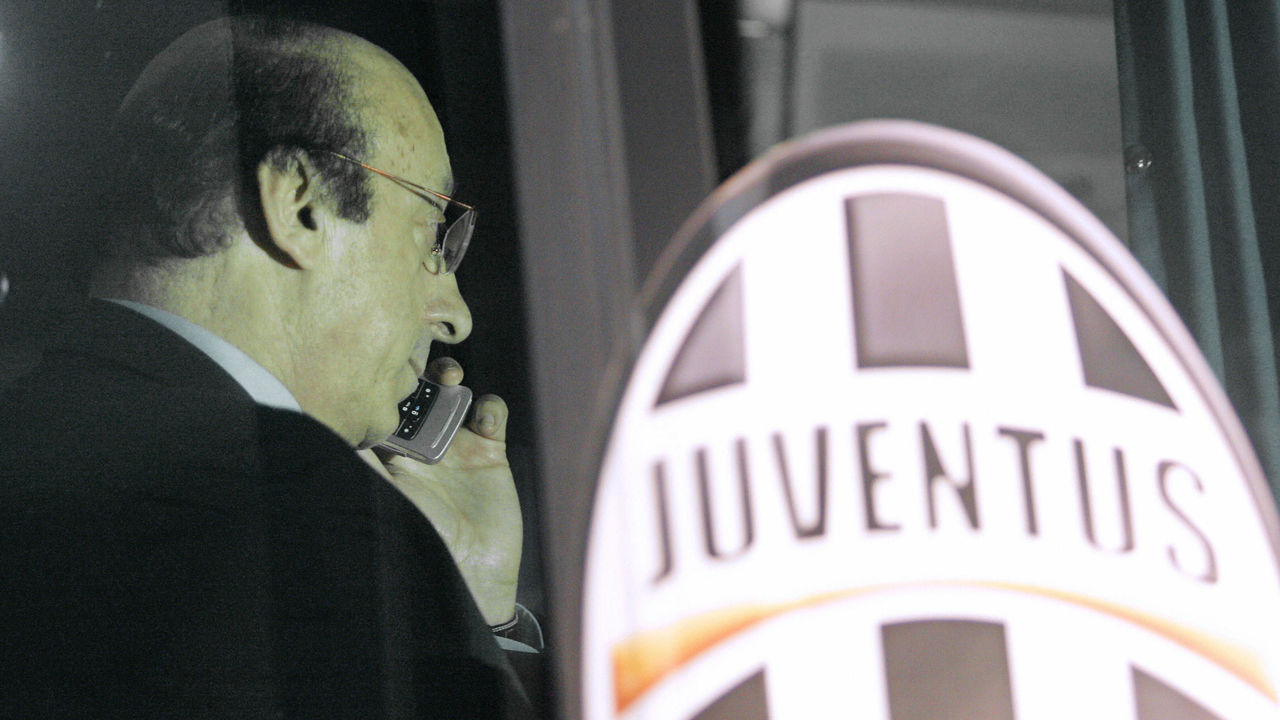
In May 2006, the Calciopoli scandal broke, exposing Serie A clubs such as Juventus, AC Milan, Fiorentina, Lazio and others. It came to light following an investigation by Italian news agency GEA World into doping allegations that uncovered conversations between refereeing officials and Serie A officials. Juventus sporting director Luciano Moggi had orchestrated favourable referee appointments, and the club was stripped of the 2004–05 title, demoted to last place for the following season and relegated to Serie B.
5. Qatar selected as host country for World Cup (2010)
Unethical FIFA has furthered its reputation for frivolity by choosing Qatar to host the 2022 World Cup. A non-existent football history, an arid local climate, exorbitant costs and Qatar’s dismal human rights record were among the many concerns raised after the Middle Eastern country was awarded the bid in 2010, amid widespread allegations of corruption. In addition, the systematic abuse of migrant workers building the infrastructure has been described as “serious exploitation” by FIFA. Amnesty International; 34 stadium workers have died in the six years since the work began.
4. Henry’s Handball vs Ireland (2009)
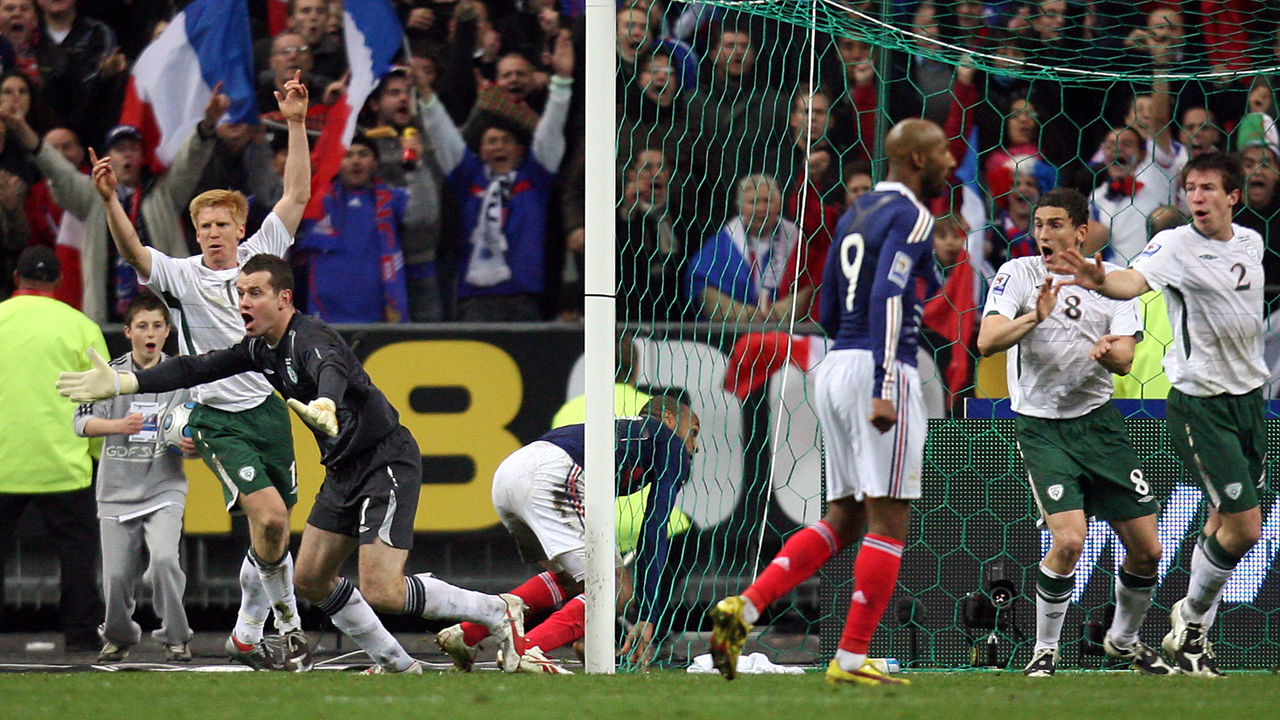
Even with a retrospective admission of guilt, Thierry Henry was labeled a cheat for handle the ball William Gallas’s extra-time winner sent France to the 2010 World Cup but dashed Ireland’s hopes. Requests from the Irish government and the Irish Football Association for a replay or to enter the quadrennial competition as the 33rd team, a first, were rejected, and the FIFA Executive Committee held an emergency meeting to consider the inclusion of technology to review such incidents. Now we have VAR, which is not without its flaws.
3. Zidane’s Headbutt (2006)
Perhaps it is fitting that Zidane a sparse head was lowered into Marco Materazzi’s chest with the panache that characterized a famous mandate and rich in virtuoso performances. It was totally unexpected, but when Zidane head-butted the talk shit An Italy defender, he already knew it would be his last game in the 2006 World Cup final, which ended in a 1-1 draw after extra time. As this incomparable talent walked off the pitch and past the trophy, the curtain fell on an exceptional career capped by a shocking final act and accompanied by the following appeal: “He leaves football in disgrace”.
2. “The Hand of God” by Maradona (1986)
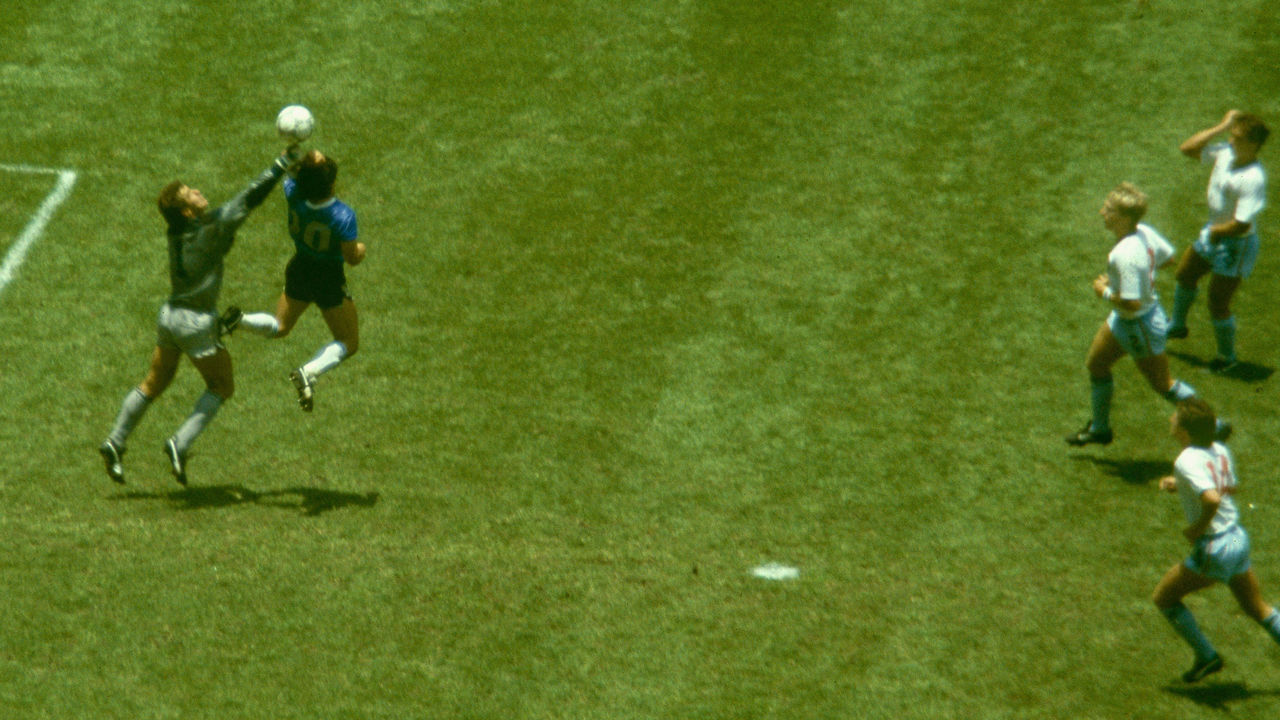
The scene was set at the Azteca stadium in Mexico City. Two famous opponents were meeting in the quarter-finals of the 1986 World Cup, the Falklands War behind us. Maradona attributed his success to divine help.God’s hand” finish, although it was thanks to his courage that the Argentine deity jumped to challenge the Three Lions goalkeeper, Peter Shilton, before putting the ball into the back of the England net. Four minutes later, with England in turmoil, Maradona scored what is arguably the greatest goal in history. best solo goal in World Cup history.
1. Escobar’s Fateful Own Goal (1994)
Days after Colombia’s elimination from the 1994 World Cup, captain Andrés Escobar was gunned down in the parking lot of a Medellin nightclub. It was believed to be retaliation for Escobar’s own goal against the United States that helped eliminate tournament favorites Colombia. The murder shocked the sports world and highlighted the inherent and precarious link between sport and crime in a city and country that had spiraled further out of control following the death of drug trafficker Pablo Escobar in 1993. Andrés Escobar paid a high price for these societal failings.

